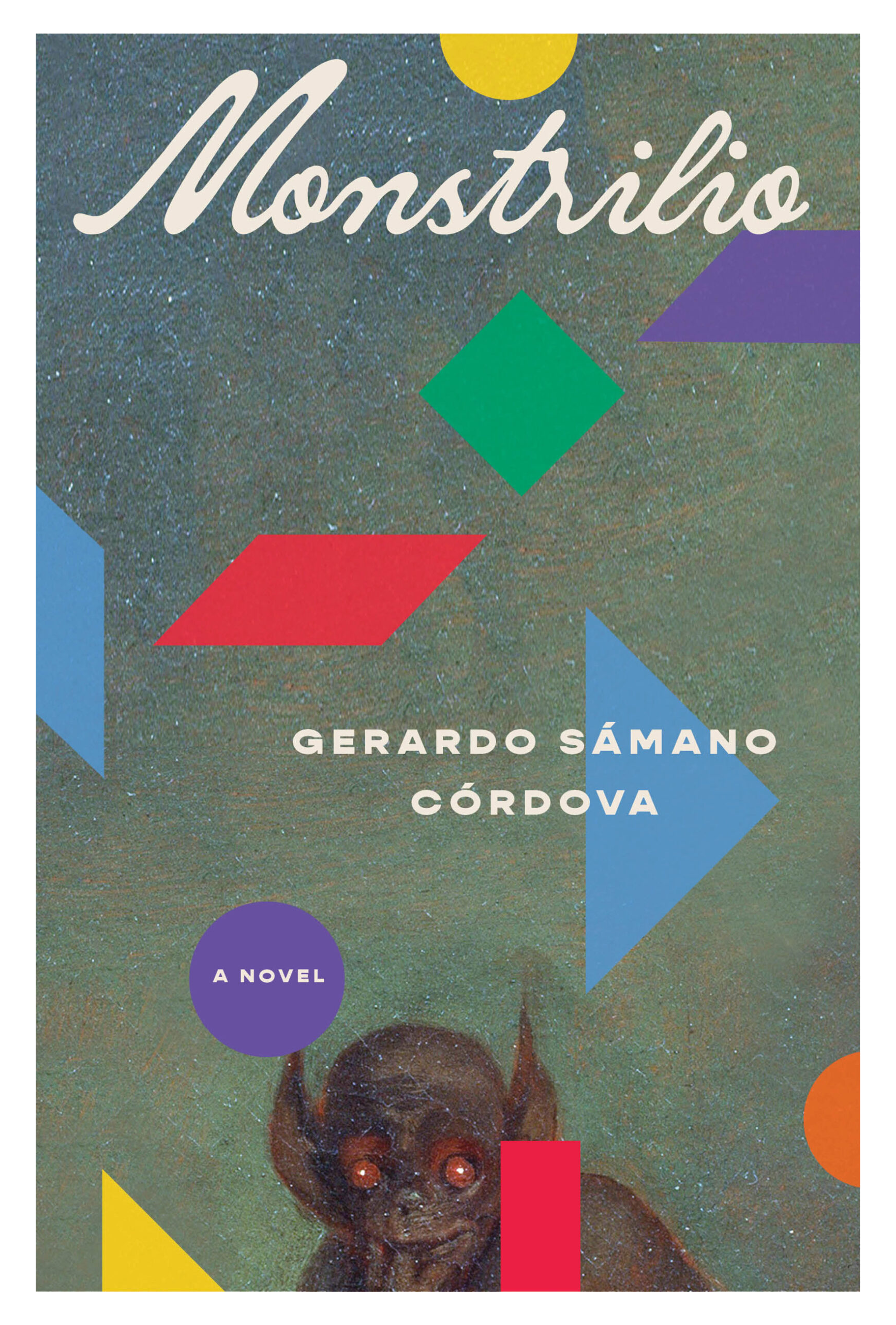Monstrilio — On Nurturing Love From Grief and Finding Humanity in Horror
Gerardo Sámano Córdova’s debut novel, Monstrilio, begins in grief and ends in rebirth. Magos, a grief-struck mother mourning over the body of her eleven-year-old son, Santiago, sets forth an exploration of grief’s physical manifestations by cutting off a piece of his lung, which she nurses into sentience and thereafter calls “M.” As the lung develops into a living creature, audiences are given glimpses into his life from multiple viewpoints, including from “M” himself in the last quarter of the novel. By the novel’s close, as “M” leaves his family behind, it becomes clear that his life is only just beginning.
Gerardo Sámano Córdova champions the queer horror genre with his debut novel quite incredibly. In form alone, Monstrilio makes several non-traditional literary choices, including the split narrative, the noticeable absence of quotations, and its non-explanatory nature. From a purely literary standpoint, Córdova’s storytelling choices for the novel embody the looseness and challenging nature that horror has long encouraged in holding taboo conversations.
By providing insight into multiple character perspectives and removing the pressures of traditional Western writing form, Córdova delivers a story that is strikingly human through all of its peculiarities.
These choices create the space its characters need to truly live. Without them, the novel wouldn’t hold the strangeness required for its supernatural core. The stream-of-consciousness style, with its refusal to over-explain, keeps the story raw and unsettling. The novel is incredibly raw; it’s desolate and otherworldly because Córdova chooses to lean into humanity’s blunt and improper nature through his storytelling. It is comforting, as it reminds audiences that the most unedited and imperfect aspects of ourselves are often the most grounding human qualities we possess.
Beyond form, the content is also well-suited to the genre. Monstrilio explores concepts of grief, identity, queerness, and family – and, of course, does so in a way we are not often given the space to. The novel is deeply queer—not only through its characters and relationships, but also in the embodiment of queerness that directly challenges the status quo of tradition. In characters alone, Córdova creates a space for queerness to exist without an imposed strictness of defined sexual orientation or other binaries often imposed through Western tradition. In line with the genre itself, which prioritizes the deconstruction of popularized models, Córdova presents concepts of family and found family that, while entirely elaborate and non-definable, are also incredibly honest and heart-wrenching, allowing audiences to understand the motivations behind each choice made throughout the novel.
There is room for audiences to complain about its nontraditional essence. Monstrilio is by no means a terrifying piece of fiction—its monster is no remarkable feat. However, it’s a beautiful testament to the growth of literature and the horror genre itself, as it seeks to explore subjects and experiences that are felt but not often shared. In its entirety, Monstrilio was an excellent case for its genre – a novel dedicated to staging unconventional people, experiences, and behaviors in complete transparency. A proper homage to horror, Córdova explores the scariest subject matter possible: Ourselves and the lengths to harm we can go when riddled with grief.
Perhaps what is most enjoyable about Córdova’s work is the exact freedom he provides to his world, characters, and readers. From each character is a new means of processing the grief felt; the right to dissociation, denial, acceptance, appreciation, and everything imaginable is taken by his characters, without question or judgment. Their grief is palpable in their choices – it’s unruly and unsanitized and heartbreakingly understandable.
Córdova’s world is one where flesh gives way to the unthinkable – pieces of a lung giving way to create a monster-boy-like creature that reminds us of our most human desires to belong and be, while reason and morality are abandoned for the sake of grief and love by the novel’s own representations of “proper” humanness. In this world, everything we know has been turned on its head. Córdova explores a concept of horror that is not overtly expressed through metaphor and grandiose symbolism, but instead grounded in our own honest behavior. We know the monster is not what it seems. We understand what is being said between the lines – and Córdova challenges us to ask why we must put on a show to admit we ourselves are what is most horrific.
Through Córdova’s unfiltered portrayal of grief, we’re invited to confront the darkest parts of ourselves—and, more importantly, to see those qualities understood and loved anyway. The space Córdova provides is liberating—capturing the depth of humanity’s experiences, the cracks in our reserves that he then fills with unconditional acceptance. Córdova does not shy away from the power of grief. Just like Magos to “M”, he releases grief from its enclosure and watches as it mutilates and grows and changes everything around us. More impressively, he sits back to let us do as we know—to let love grow alongside it as well.
In Monstrilio, grief grows flesh, love takes monstrous form, and humanity is revealed in all its unruly beauty. To any reader seeking to be reminded that even in sorrow’s darkest spaces, love persists, I can not recommend this novel enough. I encourage all readers to take the time and sit in the space Córdova provides us to be shamelessly ourselves — to grieve recklessly, act without caution, celebrate abnormalities, and dare to love twice as hard as you do anything else. Just like “M” and his family, challenge yourselves to sit in the discomfort of life. Not to deny yourself the right to be affected, to be difficult and in-between, and to revel in the love and peace that grows because of it.

